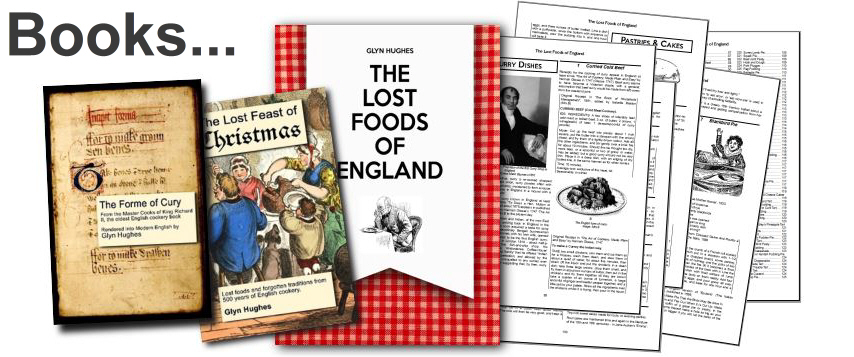

|
 A made-wine from plums, especally associated with the Cotswolds. The origin of the name is obscure.  Plum Jerkum Border Morris Dancer Image: http://www.plumjerkum.co.uk The 'Worcester Journal' for Saturday 17 October 1891 has; "Many readers know what "plum jerkum" is. Some may not. It is the fermented juice of plums, and is a very heady liquor. In the country they often mix it with cider, and thus moderate its effect. Plums having been so remarkably plentiful this year, and sold badly for eating or preserving, or not sold at all, a good deal of "Jerkum" has, no doubt, been made. A man who was brought before the Pershore magistrates on a charge of drunkenness confessed he had a drop too much of it. Perhaps he took it neat, instead of mixing it with cider. The justices considered he should pay ten shillings for the offence, and he had to jerk'em out."  Original Receipt from the folk-dance group named in honour of the drink; plumjerkum.co.uk Original Receipt from the folk-dance group named in honour of the drink; plumjerkum.co.ukCHARLEY STANLEY'S PLUM JERCUM "This be a very auld resippee. Charley bein' a well known chap from Bretforton, which be a village 4 miles from Asum. You can make it in small lots to be put in bottulls or in big uns to be put in borrulls, like some peepul round ear do. Wether it be in bottulls or borrulls it be sum jolly good tak and as bin nown to put some folk on thur backs and to leave um feelin far from well nex mornin. Thee wants 3lb plums, 3lb shuggur and 6 pints watter. First of all boil the plums in a cottun or muslin bag in the six pints of watter. Boil the plums until um be tendur, then squeeze all the joose out into the lickwid left in the pan. Add the shuggur when lookwarm and stur until it be all gon. Then put the lickwid into a gallon demijar and top up with watter until thur be a fur inch space at the top. This ull allow it room to work. Mak surton thee hast an airlock in the cork. Leave fur a cuppell of wicks after it ave finished bubblin to allow the segments to settul. Then syfun it off into your bottulls. It be best left fur at least 2 munths befor thee trys it." N.B. Jerkum means 'jerk them' either up or down! Those of you with some brewing knowledge will spot the flaw in this recipe - boiling the fruit will kill off any natural yeast. There are, therefore, two options. The first is to extract the juice by other methods and hope there is a natural yeast to start the fermentation. The second is to add a yeast. The drink has been successfully made over the last few years following this recipe and by adding a yeast (brewers and wine yeasts have both been tried). We feel that originally a yellow plum would have been used so that the drink looked more like cider, but a pink cider is also very palatable. CECIL BLOXHAM'S RECEIPT FOR PLUM JERKUM I bumped into Ceceil Bloxham, one of Harbury's great characters. I asked him about his recipe for Plum Jerkum and, after about 10 minutes background story, he got to the point! To call it a recipe is misleading but you would have enjoyed hearing him describe it. He learnt the method from an Evesham man who came to live in Harbury temporarily in the 1930's. Basically all he told me was "Collect rain water in a barrel and leave some plums in the barrel for a few weeks. They should start to ferment on their own, he said. Then strain the mixture through muslin into a container with an airlock and start adding brown sugar, little by little. The'knack', as he desvribed it, was knowing how much sugar to add and when to bottle it. And that's about as precise as he got, apart from leaving it for at least 6 months before drinking it (when it should taste like 'velvet' he said)." Basically, he emphasised soft water, brown sugar and not adding all the sugar in one go. WASSAIL! Information courtesy of Des Patalong our brewer for several years until 2004  |
|
MORE FROM Foods of England... Cookbooks ● Diary ● Index ● Magic Menu ● Random ● Really English? ● Timeline ● Donate ● English Service ● Food Map of England ● Lost Foods ● Accompaniments ● Biscuits ● Breads ● Cakes and Scones ● Cheeses ● Classic Meals ● Curry Dishes ● Dairy ● Drinks ● Egg Dishes ● Fish ● Fruit ● Fruits & Vegetables ● Game & Offal ● Meat & Meat Dishes ● Pastries and Pies ● Pot Meals ● Poultry ● Preserves & Jams ● Puddings & Sweets ● Sauces and Spicery ● Sausages ● Scones ● Soups ● Sweets and Toffee ● About ... ● Bookshop ● Email: editor@foodsofengland.co.uk COPYRIGHT and ALL RIGHTS RESERVED: © Glyn Hughes 2022 BUILT WITH WHIMBERRY |